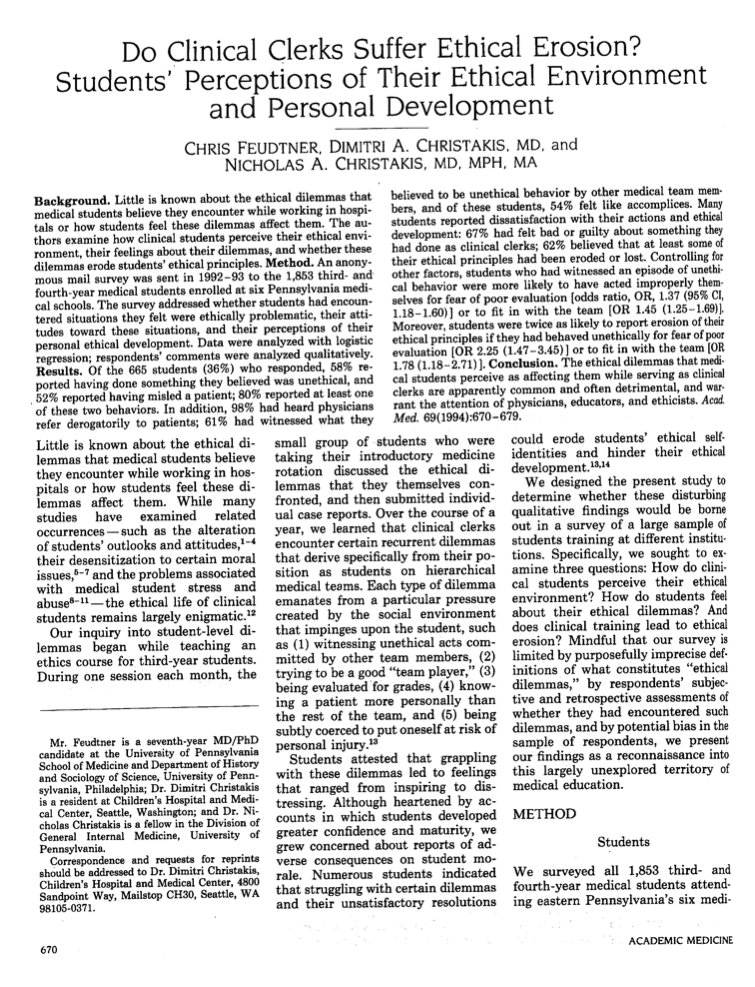
Do Clinical Clerks Suffer Ethical Erosion? Students' Perceptions of Their Ethical Environment and Their Personal Development
Abstract
BACKGROUND: Little is known about the ethical dilemmas that medical students believe they encounter while working in hospitals or how students feel these dilemmas affect them. The authors examine how clinical students perceive their ethical environment, their feelings about their dilemmas, and whether these dilemmas erode students' ethical principles.
RESULTS: Of the 665 students (36%) who responded, 58% reported having done something they believed was unethical, and 52% reported having misled a patient; 80% reported at least one of these two behaviors. In addition, 98% had heard physicians refer derogatorily to patients; 61% had witnessed what they believed to be unethical behavior by other medical team members, and of these students, 54% felt like accomplices. Many students reported dissatisfaction with their actions and ethical development: 67% had felt bad or guilty about something they had done as clinical clerks; 62% believed that at least some of their ethical principles had been eroded or lost. Controlling for other factors, students who had witnessed an episode of unethical behavior were more likely to have acted improperly themselves for fear of poor evaluation [odds ratio, OR, 1.37 (95% CI, 1.18-1.60)] or to fit in with the team [OR 1.45 (1.25-1.69)]. Moreover, students were twice as likely to report erosion of their ethical principles if they had behaved unethically for fear of poor evaluation [OR 2.25 (1.47-3.45)] or to fit in with the team [OR 1.78 (1.18-2.71)].
CONCLUSION: The ethical dilemmas that medical students perceive as affecting them while serving as clinical clerks are apparently common and often detrimental, and warrant the attention of physicians, educators, and ethicists.
Citation:
C. Feudtner, D.A. Christakis, and N.A. Christakis, "Do Clinical Clerks Suffer Ethical Erosion? Students' Perceptions of Their Ethical Environment and Their Personal Development" Academic Medicine, 69(8): 670-679 (August 1994)